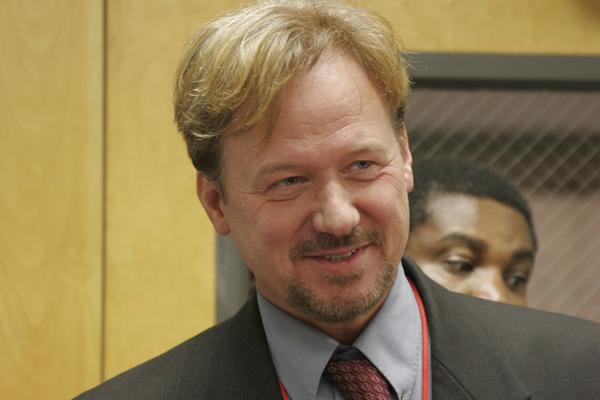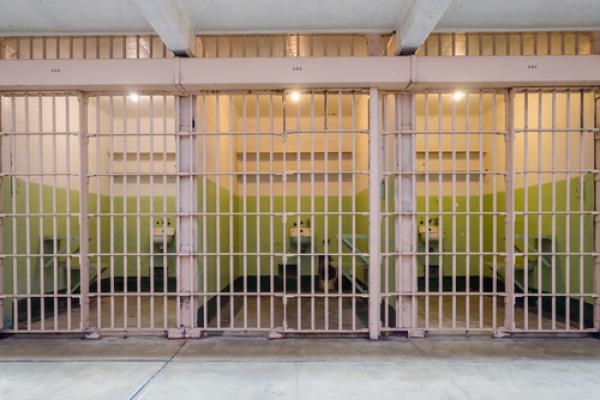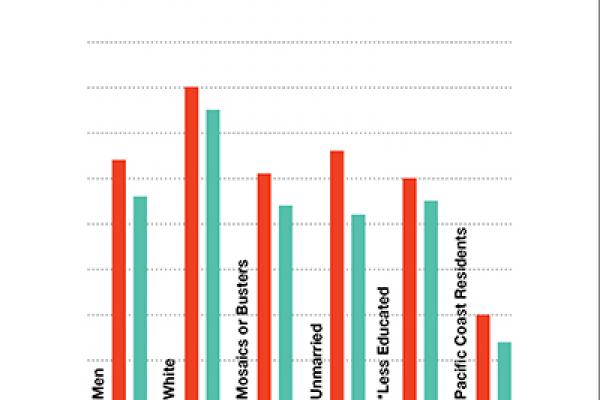Pope Francis on Oct. 27 waded into the controversial debate over the origins of human life, saying the big bang theory did not contradict the role of a divine creator, but even required it.
The pope was addressing the plenary assembly of the Pontifical Academy of Sciences, which gathered at the Vatican to discuss “Evolving Concepts of Nature.”
“When we read about Creation in Genesis, we run the risk of imagining God was a magician, with a magic wand able to do everything. But that is not so,” Francis said.
“He created human beings and let them develop according to the internal laws that he gave to each one so they would reach their fulfillment.”
Francis said the beginning of the world was not “a work of chaos” but created from a principle of love. He said sometimes competing beliefs in creation and evolution could co-exist.
Seven years after officiating at the wedding of his gay son, the Rev. Frank Schaefer has been reinstated as a clergyman in the United Methodist Church.
The denomination’s top court upheld a June decision to reinstate Schaefer’s ministerial credentials after a trial court defrocked the Pennsylvania pastor last year.
Schaefer appealed and was reinstated by a vote of a regional court, the Northeastern Jurisdiction Committee on Appeals. At that time, Schaefer said, “I will not refuse ministry to anyone. I will never be silent again. I will always speak for my LGBTQ brothers and sisters.”
In the ruling released Oct. 27, the church’s top court upheld Schaefer’s appeal while acknowledging “some within the church do not support this outcome today,” according to United Methodist News Service.
“Administration officials have repeatedly assured Americans that they were prepared for Ebola. Less than two weeks ago here at the White House, they insisted they knew how to stop this virus in its tracks. But so far, the virus appears to be outrunning the government. “
So began Scott Horsley’s report from the White House, one of three separate stories NPR’s news showAll Things Considered devoted to Ebola on Wednesday, October 16. According to yet another report, a recent Harvard School of Public Health survey finds that 40 percent of Americans feel “at risk” of contracting the disease.
We have Ebola on the brain.
Several of my friends expressed alarm when the first Ebola patient flew to the United States for treatment. Now we find that not one but two Dallas nurses have contracted Ebola, likely because their hospital did not adopt proper Ebola protocols. Americans know that their medical system is far better equipped to prevent an Ebola outbreak than are those in West Africa. We know our system is better prepared to offer effective treatment. But the appearance of multiple cases, one involving a nurse who took a commercial flight while possibly contagious, has people concerned. When a key public health expert says, “It’s a learning process, and . . . our confidence in the hospitals was ill-founded,” the rest of us might get a little nervous.
It was in my senior year of high school that I began to lose my faith in Scripture.
Then, my first year of college I read the entire Bible, cover to cover, and that pretty much destroyed what confidence I had left.
The Bible, I discovered, was full of polygamy, incest, murder, rape, genocide, adulterers, inconsistencies, impossibilities, and a whole bunch of screwed-up people who never seemed to get anything right.
The more I studied the “perfect” word of God, the more I expected that doctrine would become clear and consistent, the authors exemplary, and the stories contain distinct and readily discernible meanings.
When I read, I found I had more questions than answers, concerns than affirmations, and was more likely to feel disrupted than tranquil.
I almost gave up entirely.
Religious groups are battling the state of California over whether employee health insurance plans require them to pay for abortions and some forms of contraception that some find immoral.
So is the state forcing churches to pay for abortions? It depends on who you ask.
The issue gained traction after Michelle Rouillard, director of the California Department of Managed Health Care, sent a letter to Anthem Blue Cross and several other insurance firms in August warning providers that state law requires insurers to not deny woman abortions. “Thus, all health plans must treat maternity services and legal abortion neutrally,” she wrote.
Rouillard wrote that state law provides an exemption for religious institutions.
“Although health plans are required to cover legal abortions, no individual health care provider, religiously sponsored health carrier, or health care facility may be required by law or contract in any circumstance to participate in the provision of or payment for a specific service if they object to doing so for reason of conscience or religion,” she wrote.
“No person may be discriminated against in employment or professional privileges because of such objection.”
However, two legal groups have filed complaints with the U.S. Department of Health and Human Services, alleging the California rule puts faith-based organizations in a position to violate their conscience.
Editor’s Note: Global warming means rising sea levels, worsening extreme weather events, and a threat to God’s creation and people. The world has not experienced normal global temperatures since 1985. So while some might call them millennials, anyone under the age of 30 is part of the “Climate Generation.” If you’re under 30, congrats! You’ve inherited a big problem. Bill Lewis has a letter to share, written to his two year old grandson, and to all those who will inherit a changed planet.
Dear Future Generations,
Today, a day that encompasses all that has gone before and precedes all that will come, I write as one whose heart breaks open with joy at an expanse of prairie or Southern Pine flatwoods stretching to the horizon. I write as one who thinks of your life, my little 2-year-old grandson, and what opportunities you might have to know the natural world. I write as one who thinks of this beautiful world that encompasses so much diversity in the creatures, plants, soils, and relationships. At first I was going to tell you what I think you should know. But now it seems that I have more questions than answers. Perhaps as you live into these questions and others that you will ask, you’ll grow in wisdom and stature and awe of God. Will there be any natural areas left? Will you have the opportunity to experience what was once the largest and most biologically diverse forest type in North America – Longleaf Pine? Will you be able to travel on foot away from concrete, autos, electricity? Will you be able to be in places where nature has the power and sculpts the landscape, rather than people?
Pope Francis said Oct. 23 that keeping inmates isolated in maximum security prisons is “a form of torture,” and called life sentences “a hidden death penalty” that should be abolished along with capital punishment.
“All Christians and people of good will are called today to struggle not only for abolition of the death penalty, whether legal or illegal, and in all its forms, but also to improve prison conditions, out of respect for the human dignity of persons deprived of their liberty,” the pope told delegates from the International Association of Penal Law.
“And this I connect with life imprisonment,” he continued. “Life imprisonment is a hidden death penalty.”
The pope noted that the Vatican recently eliminated life imprisonment from its own penal code, though that move was largely symbolic.
In the wide-ranging address, Francis denounced practices that are widespread in many regions of the world, such as extrajudicial executions and detentions without trial, which he said account for more than half of all detentions in some countries.
Francis also denounced corruption in penal systems, calling it “an evil greater than sin.”
If you’re dismayed that one in five Americans (20 percent) are “nones” — people who claim no particular religious identity — brace yourself.
How does 38 percent sound?
That’s what religion researcher David Kinnaman calculates when he adds “the unchurched, the never-churched and the skeptics” to the nones.
He calls his new category “churchless,” the same title Kinnaman has given his new book. By his count, roughly four in 10 people living in the continental United States are actually “post-Christian” and “essentially secular in belief and practice.”
If asked, the “churchless” would likely check the “Christian” box on a survey, even though they may not have darkened the door of a church in years.
Kinnaman, president of the California-based Barna Group, slides them into this new category based on 15 measures of identity, belief and practice in more than 23,000 interviews in 20 surveys.
The research looked at church worship attendance and participation, views about the Bible, God and Jesus, and more to see whether folks were actually tied to Christian life in a meaningful way or tied more by habit or personal history.
Protests in Ferguson, rallies in Hong Kong, and the Occupy Movement: People challenging systems and structures clamber for my attention. But faithful followers of Jesus shouldn’t get involved in these political and economic wrangling, should they? Sure, we ought to pay our taxes and vote; you know, give to Caesar and all that. But Christians should only be concerned about the spiritual transformation of individuals, not gallivanting around to rail against political and economic systems. After all, Jesus never protested political or economic policies did he? If we transform enough people, won’t the rest of the systemic issues work themselves out?
I have heard this challenge to Christian involvement in social movements numerous times, and it holds a certain appeal for someone like me who is allergic to politics. I’m the no-bumper-sticker, no-yard-sign guy who would just as soon steer a discussion away from upcoming elections than face the discussion of large-scale political or economic issues. I’d much rather focus on individual spirituality. After all, Jesus never did march on Rome or speak out against Caesar’s cruel dictatorship. He doesn’t mean for us to get mixed up in social, political or economic activism.
Or does he? I am learning to re-examine the cultural lenses by which I encounter Christ in scriptures.
I have just returned from South Korea where I did an academic lecture on premillennial dispensationalism at Hoseo University. My very basic overview of the five aspects of Premillennial Dispensationalism: tribulational views, millennial views, dispensational categories, the Darby system, and biblical interpretive perspectives created quite a stir amongst students and faculty, which only goes to prove the impact that premillennial dispensationalism has had on the Christian community worldwide. I chose this topic in honor of the recent reissuance of the Left Behind movie.
Since the movie came out on Oct. 3, there have been numerous blog responses. I point you to two in particular that reflect my own views on the details of the biblical text and its interpretation:
- Nobody Is Getting 'Left Behind' (Because the Rapture Is Never, Ever Going to Happen)
- Why ‘Left Behind’ should be... left behind
Given these interpretations of the theology found in the Left Behind series I would like to take the conversation to the next level.
What has not yet been said in any blog that I have read is that premillennial dispensationalism is an elitist theology.









